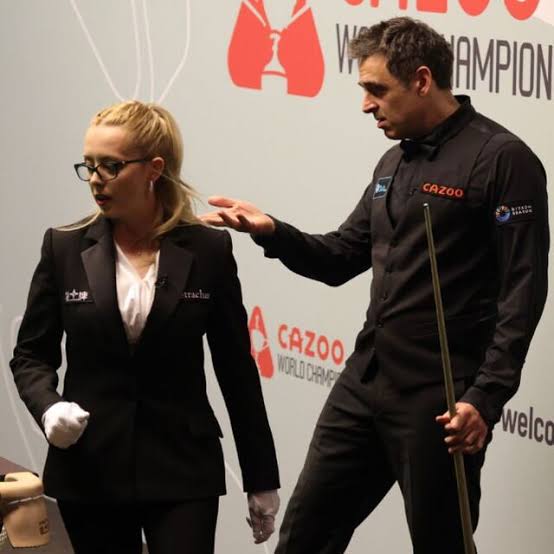Ronnie O’Sullivan, the renowned snooker champion, has recently addressed claims labeling him a “bully” following a controversial incident with a referee at the Crucible Theatre. The row, which occurred during a high-stakes match, has sparked widespread media attention and discussions within the sport.
During the match, O’Sullivan expressed frustration with the referee’s decisions, leading to a heated exchange. Critics quickly seized on the moment, suggesting that his behavior exemplified a bullying attitude towards officials. In response, O’Sullivan firmly rejected these accusations, insisting that his passion for the game sometimes manifests as intensity on the table, but it is not intended to intimidate or belittle others.
In a statement released after the match, O’Sullivan explained, “I play with a lot of emotion and sometimes that can come across the wrong way. But I would never bully anyone. Referees have a tough job, and I respect their role in the game.” He emphasized that his aim is always to uphold the integrity of snooker and foster a positive environment.
Supporters of O’Sullivan argue that his competitive nature is often misinterpreted. They point to his long-standing contributions to the sport, including his efforts to elevate snooker’s profile and inspire younger players. Many fans appreciate his candidness and passion, viewing it as a testament to his dedication rather than an indication of poor sportsmanship.
However, the incident has reignited debates about player conduct and the treatment of referees in professional sports. Critics highlight that regardless of the intensity of competition, players must maintain decorum and respect towards officials. They argue that incidents like this can create a toxic atmosphere, deterring young players from pursuing the sport.
O’Sullivan’s remarks reflect a broader issue within snooker and sports in general: the balance between competitiveness and respect. As one of the sport’s biggest stars, his behavior is under constant scrutiny, and how he navigates this situation may influence both his legacy and the culture of the sport.
In conclusion, while O’Sullivan has dismissed claims of being a “bully,” the incident raises important questions about player conduct and the need for mutual respect between athletes and officials. As the snooker community continues to reflect on this event, it will be crucial to foster an environment where passion for the game does not overshadow the respect owed to all participants.


